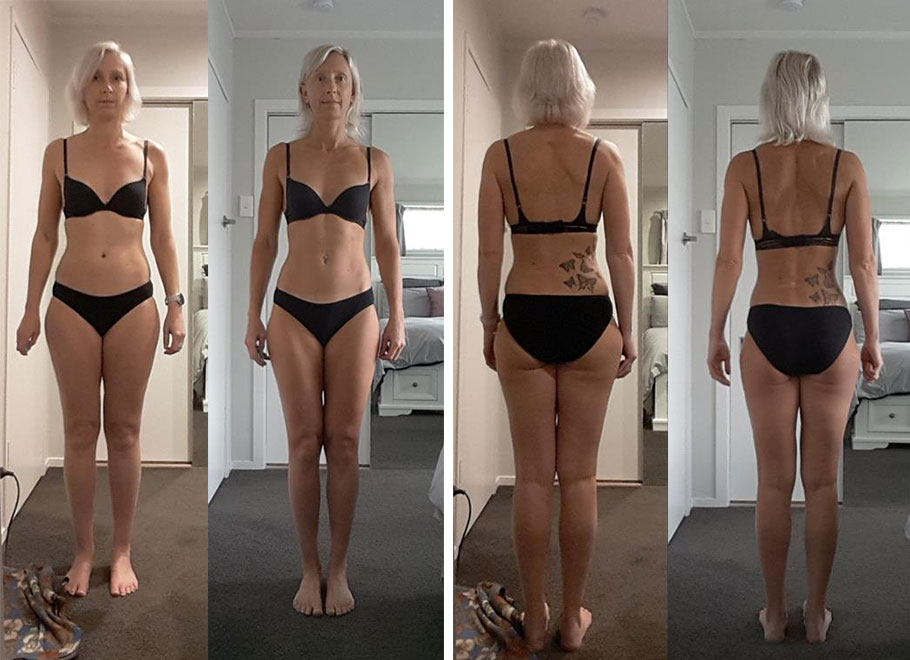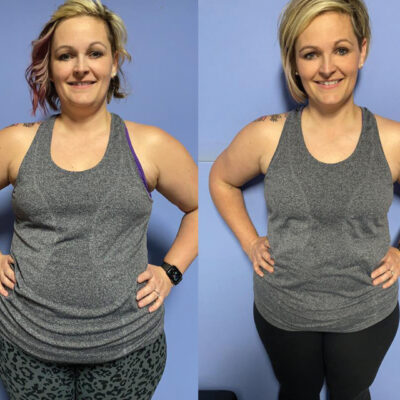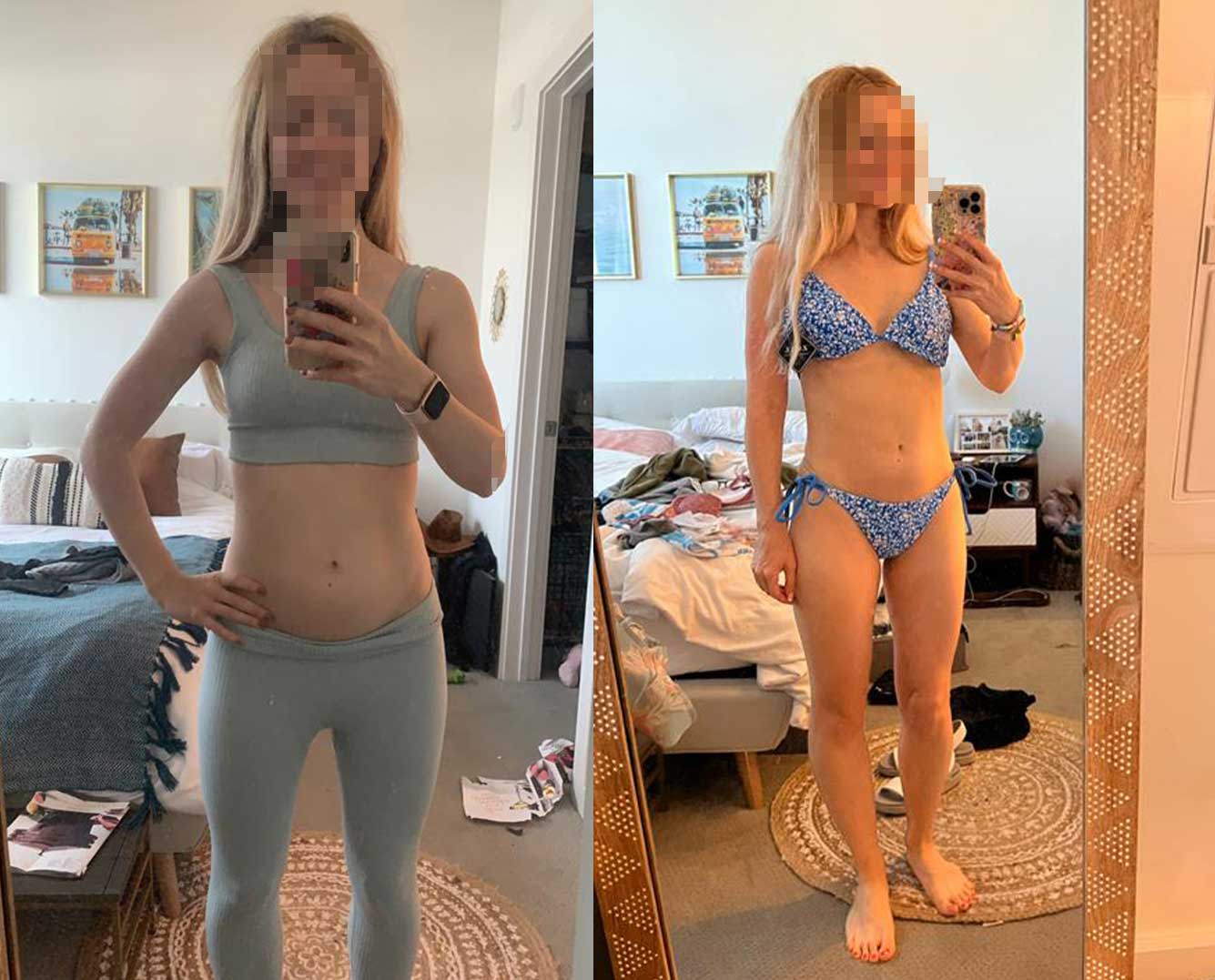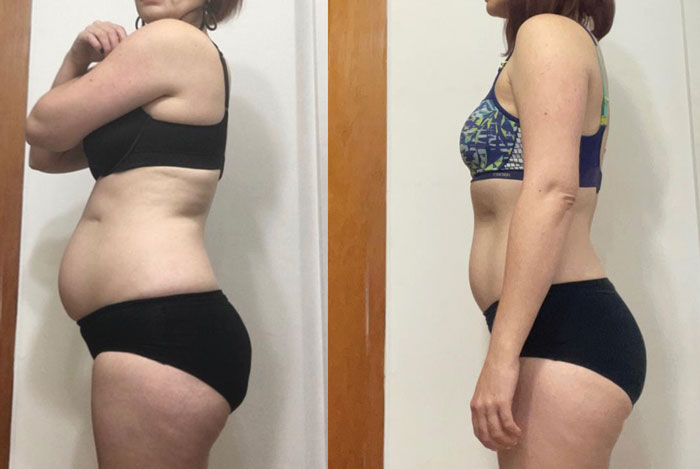
Not sure what to eat before or after a workout? Proper pre- and post-workout nutrition for women can boost energy, build and preserve muscle, and speed recovery. In this guide, you’ll learn simple, research-backed tips on protein, carbs and meal timing so that you can get the best possible results from your workouts.
I’ve also put everything into a video if that’s more your style:
Why Workout Nutrition Matters
Fuel Your Energy for Training
Eating the right foods before exercise helps you train harder and longer. Even a small snack with protein and carbs can prevent energy crashes and will allow you to push harder in the gym.
Support Muscle Repair and Recovery
Pre- and post-workout meals provide the amino acids your muscles need to repair and grow. This also supports hormone balance, immune health, and bone density.
Daily Protein Is Key
Aim for 1g of protein per pound of ideal body weight (roughly 120–140g/day for most women). Daily protein intake is more important than protein distribution – but focusing on meal timing will get you even better results.
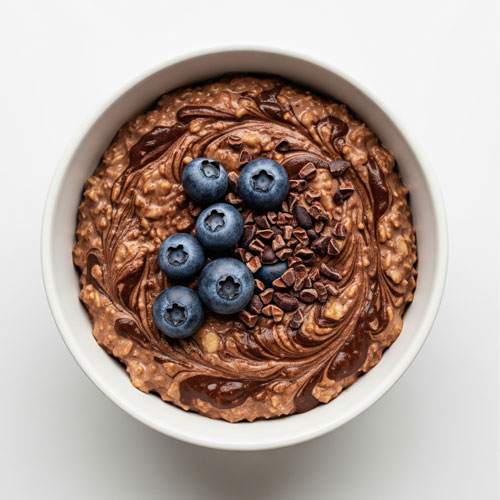
Pre-Workout Nutrition for Women
Timing Your Pre-Workout Meal
Your pre-workout meal ideally would be eaten 1–2 hours before training. This gives your body time to digest, absorb nutrients, and fuel your workout.
- If you eat too close to training, you might feel sluggish or bloated so keep your meal small.
- If your meal is farther from training (3–4 hours), make it slightly larger to maintain energy.
- Early morning workouts? A small snack like half a banana with whey protein is enough to energize you without feeling heavy.
Best Pre-Workout Foods
Choose foods that combine protein and easily digestible carbs. Fat and fiber are fine but may slow digestion if eaten immediately before training.
Examples:
-
- Protein oats
- Eggs and toast
- Protein bar
Real-World Meal Timing Examples
- Breakfast → train 1.5–2 hours later → lunch (ideally within 30-45 minutes)
- Lunch → train mid-afternoon → protein shake (within 30-45 minutes) → dinner
- Early morning → banana + whey protein → train → breakfast after training
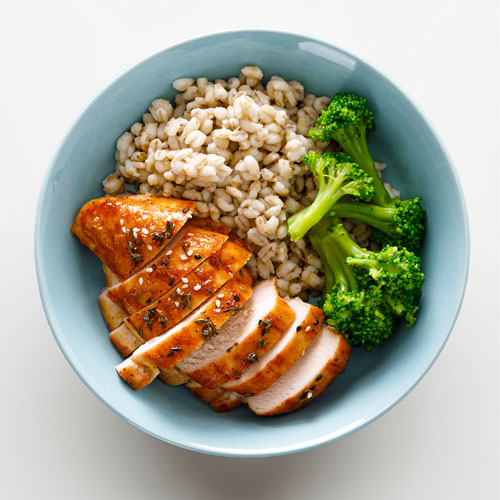
Post-Workout Nutrition for Women
Why Protein Is Key For Workout Nutrition
Protein after your workout helps repair and rebuild muscle, supports recovery, and can help preserve lean mass and strength as you age.
- High-quality protein sources provide essential amino acids, including leucine, which triggers muscle protein synthesis.
- Adequate protein post-workout also helps lower cortisol, which can be elevated after exercise.
Post-Workout Meal Timing
Aim to eat your post-workout meal within 30–45 minutes for maximum benefit.
- This is especially important for women over 40, as timely protein intake helps prevent muscle breakdown.
- If you can’t eat immediately, don’t stress – total daily protein is still the most important factor.
Carbs and Recovery
Carbs play an important role in fueling your workouts and supporting post-workout recovery. They help replenish glycogen stores, which is your muscles’ main source of energy, and can improve performance in future training sessions.
- In the least, include carbs after your workout, especially if your session was long, intense, or earlier in the day before another activity, or your primary goal is to build muscle.
Post-Workout Meal Examples
- Protein shake with fruit
- Chicken or fish with rice and steamed vegetables
- Protein oats
Workout Nutrition Special Considerations
Fasted Training Tips
Some women train well fasted, but having a small serving of protein and carbs can help with energy and protect muscle mass. Always follow up with a protein-rich meal soon after your workout.
A good example would be having a half serving of whey protein and half a banana prior to training, and then following the workout with a high protein breakfast. This is especially important if your primary goal is to build muscle.
Protein Needs for Women Over 40
Women may need slightly higher protein doses per meal (35–45g) to maximize muscle protein synthesis. This is because our muscles are not as responsive to protein as they were when we were younger.
Leucine Threshold
Leucine, an amino acid found in protein sources such as whey, eggs, chicken, and fish, supports muscle retention and growth. Aim for 2.5–3g per meal, and 8-9g total per day.
FAQ: Pre- and Post-Workout Nutrition
Q: What’s the best pre-workout snack for women?
A: A small meal with protein and carbs 1–2 hours before training, like a protein shake, oats with protein, or cottage cheese and fruit, fuels energy and supports muscle.
Q: How much protein should I eat after a workout?
A: 30–40g of high-quality protein helps repair muscles and supports recovery for women.
Q: Can I train fasted?
A: Many ladies get good results training fasted. However, if you want to preserve muscle or train hard, or if your primary goal is muscle building, include some protein and carbs before and after.
Q: Are BCAAs or EAAs worth taking?
A: BCAAs or EAAs can be useful if you train fasted, since they provide amino acids that aren’t otherwise available. In this case, they may help preserve lean muscle while you train.
Q: How soon should women eat after a workout?
A: Ideally within 30–45 minutes, especially for fasted training. Total daily protein intake is most important if timing isn’t perfect.
Simple Workout Nutrition Guidelines to Remember
- Focus on total daily protein first: 120–140g/day for most women
- Spread protein evenly: 30–40g per meal, especially primary meals
- Fuel before workouts if needed
- Eat a high protein meal soon after training (ideally within 30–45 min)
- Include carbs as needed for energy
- Keep it simple – consistency beats perfection!
Bottom Line:
What to eat before and after a workout doesn’t have to be complicated. Focus on daily protein, fuel when you need energy, and use meal timing around workouts as the extra edge to help you get results. With these simple, practical tips, you’ll train harder, recover faster, and protect and build strength for years to come.
If you’d like some help with all of this check out my Meal Plan or my most popular Over 40 Transformation Program which combines the Meal Plan and Training.


